Eco-Friendly Services
Our eco-friendly services focus on sustainable landscaping practices. We offer native and drought-resistant plant installation for water conservation, eco-friendly, safe weed control methods, and organic fertilization to promote healthy soil. We also provide solar-powered outdoor lighting, rain gardens and natural drainage solutions, and create beautiful bee gardens to support pollinators and biodiversity.
Native and Drought-Resistant Plant Installation
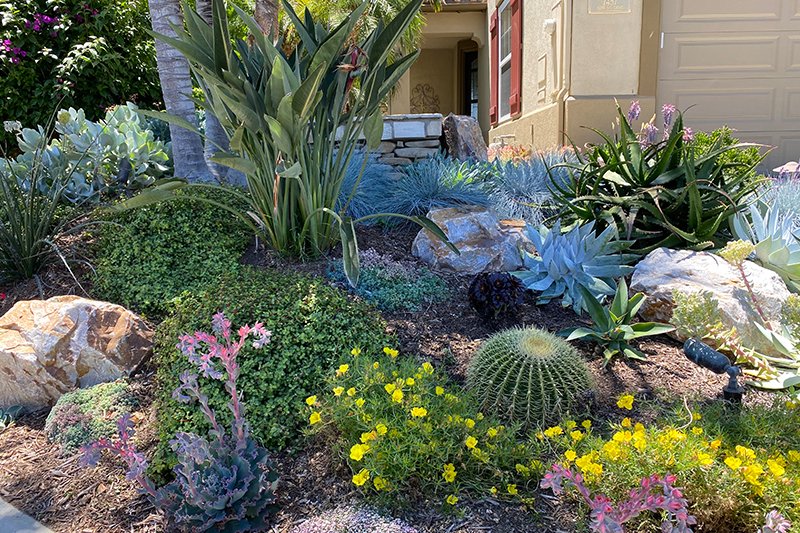
Native and Drought-Resistant Plant Installation is an eco-friendly landscaping solution that focuses on using plants adapted to the local climate, reducing water usage and promoting a healthy, sustainable environment.
Benefits:
- Water Conservation: Native and drought-resistant plants are well-suited to your area’s rainfall patterns and require less irrigation once established, helping conserve water.
- Low Maintenance: These plants are naturally resilient to pests and diseases, reducing the need for chemical treatments and frequent upkeep.
- Supports Local Ecosystems: Native plants provide food and shelter for local wildlife, such as birds, bees, and butterflies, supporting biodiversity.
- Enhances Aesthetic Appeal: These plants create a beautiful, natural landscape that thrives with minimal effort, offering vibrant colors and unique textures throughout the year.
By choosing native and drought-tolerant plants, you not only create a beautiful, low-maintenance garden but also contribute to water conservation and the health of your local ecosystem.
Eco-Friendly, Safe Weed Control
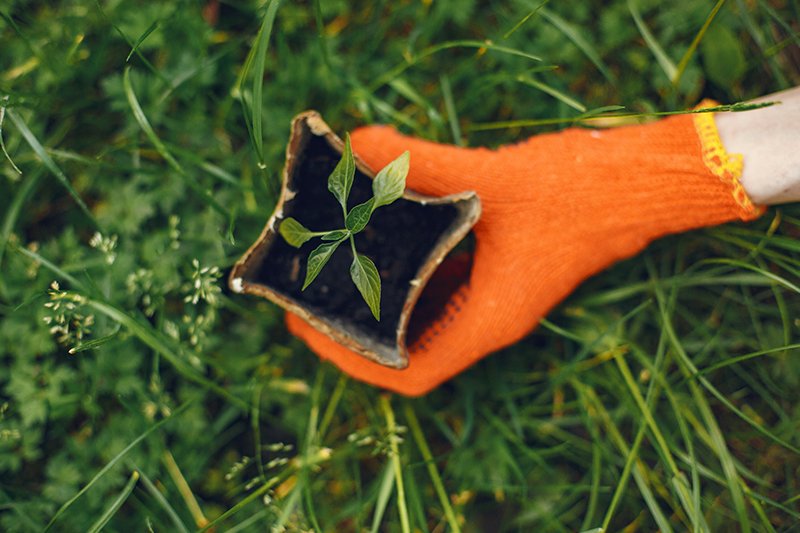
Eco-Friendly, Safe Weed Control focuses on using sustainable methods to manage unwanted weeds without harming the environment, pets, or people. Traditional chemical herbicides can pose risks to soil health, water quality, and non-target plants, but eco-friendly alternatives offer effective solutions without these dangers.
Methods:
- Mulching: Organic mulches like wood chips or straw block sunlight, preventing weed growth while enriching the soil as they decompose.
- Manual Removal: Hand-pulling or using tools to remove weeds is a simple, non-toxic method, especially effective for smaller areas.
- Organic Herbicides: Safe, plant-based herbicides such as vinegar or clove oil can be used to target weeds without the harmful effects of chemicals.
- Natural Ground Covers: Planting ground covers like clover or native grasses can naturally suppress weed growth, reducing the need for weed control.
This eco-friendly approach reduces chemical use, supports a healthier ecosystem, and promotes long-term landscape vitality.
Organic Fertilization
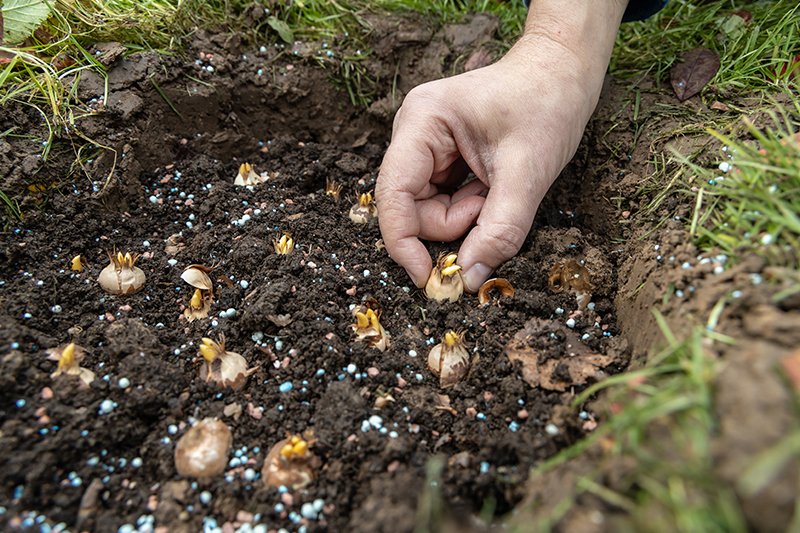
Organic Fertilization is a natural and sustainable approach to lawn and garden care that nourishes plants without the harmful effects of synthetic chemicals. Organic fertilizers are made from natural sources such as compost, manure, seaweed, and bone meal, providing a slow-release of nutrients that promote healthy, robust plant growth.
Benefits:
- Soil Health: Organic fertilizers enrich the soil by increasing microbial activity, improving soil structure, and enhancing nutrient absorption.
- Environmentally Friendly: Free from harmful chemicals, organic fertilizers reduce pollution and water contamination, making them safe for pets, wildlife, and the surrounding environment.
- Long-Term Plant Health: Unlike synthetic fertilizers that can lead to quick, unsustainable growth, organic fertilizers promote steady, long-term plant health and resilience.
- Improved Root Development: The nutrients from organic fertilizers support strong root systems, improving plant drought tolerance and disease resistance.
Choosing organic fertilization supports sustainable landscaping while improving the overall health and beauty of your garden.
Solar Powered Outdoor Lighting

Solar Powered Outdoor Lighting is an eco-friendly and cost-effective solution for illuminating your outdoor spaces. These lights harness the power of the sun to provide lighting without the need for electricity, reducing energy costs and environmental impact.
Benefits:
- Energy Efficiency: Solar lights use renewable energy from the sun, reducing your carbon footprint and eliminating the need for traditional power sources.
- Low Maintenance: Solar lights are easy to install and require minimal upkeep. With no wiring or electrical connections, they are safe and hassle-free.
- Cost-Effective: Once installed, solar-powered lights incur no electricity costs, providing long-term savings.
- Environmentally Friendly: Solar lights reduce the need for fossil fuels and decrease the strain on power grids, making them a sustainable choice.
- Versatility: Solar lights are available in various styles, from pathway and landscape lighting to accent and security lights, enhancing both functionality and aesthetic appeal.
Solar-powered outdoor lighting enhances your landscape while promoting sustainability and energy savings.
Rain Gardens and Natural Drainage Solutions
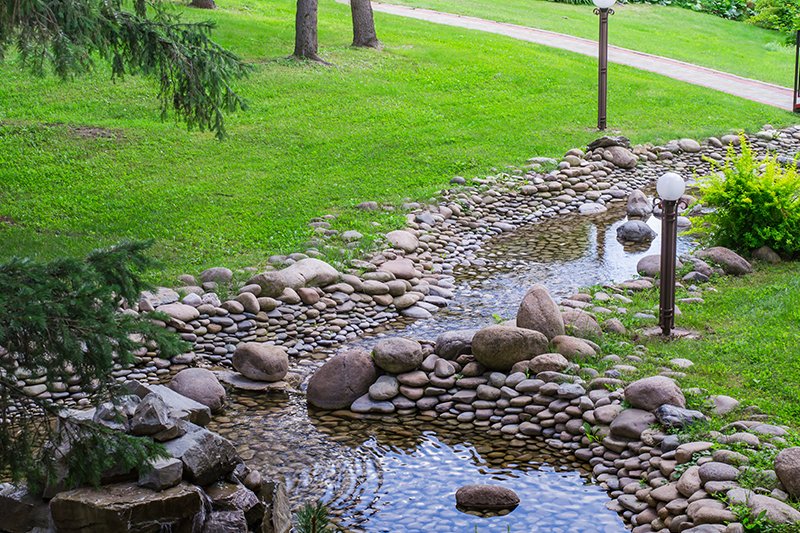
Rain Gardens and Natural Drainage Solutions are sustainable landscaping techniques designed to manage stormwater runoff, reduce erosion, and improve water quality. These solutions mimic natural processes to direct rainwater into garden spaces that absorb and filter it, preventing flooding and reducing pollution.
Benefits:
- Water Conservation: Rain gardens capture excess rainwater and allow it to slowly percolate into the ground, replenishing groundwater supplies and reducing the need for irrigation.
- Erosion Control: By directing water to absorb into the soil, rain gardens prevent the erosion of lawns and landscapes caused by runoff.
- Pollution Reduction: Rain gardens filter out pollutants like oils, fertilizers, and pesticides, preventing them from entering storm drains and waterways.
- Wildlife Habitat: These gardens create attractive spaces that support local wildlife, including birds, bees, and butterflies, by incorporating native plants.
Rain gardens and natural drainage solutions are eco-friendly ways to enhance your landscape while managing water sustainably.
Bee Gardens
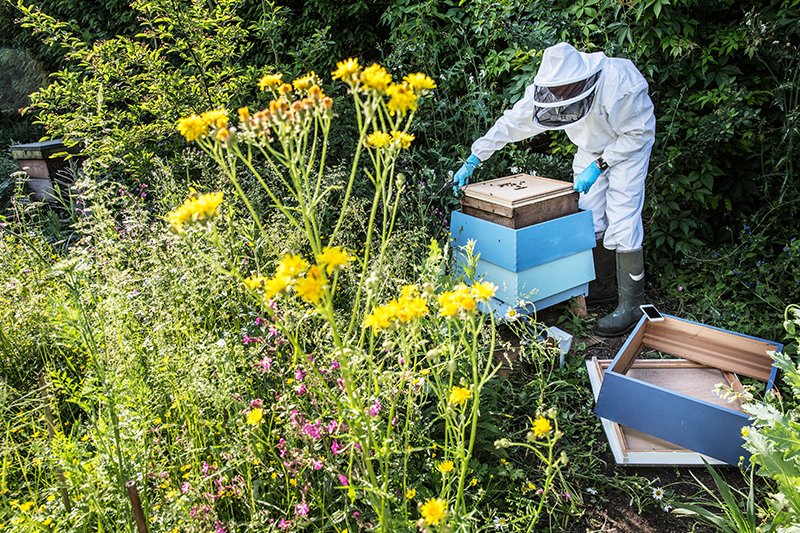
Bee Gardens are specially designed spaces that attract and support pollinators like bees, butterflies, and other beneficial insects. By incorporating a variety of native plants that produce nectar and pollen, bee gardens help sustain local ecosystems and promote biodiversity.
Benefits:
- Pollinator Support: Bee gardens provide essential food sources and habitats for bees, which are crucial for pollinating many of the crops and plants we rely on.
- Biodiversity Enhancement: By attracting a range of pollinators, these gardens contribute to a healthier, more diverse ecosystem.
- Sustainable Landscaping: Bee-friendly gardens often feature drought-resistant and native plants, reducing the need for water and chemicals.
- Educational Value: Bee gardens can serve as learning tools, raising awareness about the importance of pollinators in our environment.
Creating a bee garden not only enhances your landscape but also plays a vital role in preserving pollinator populations and supporting a thriving ecosystem.

